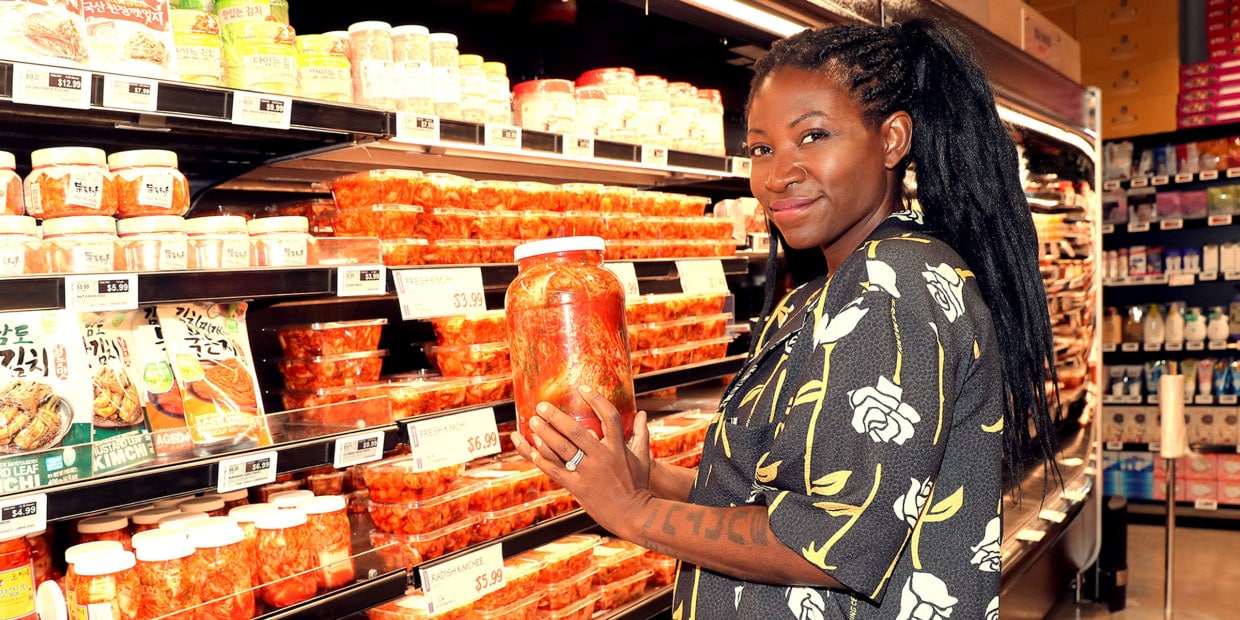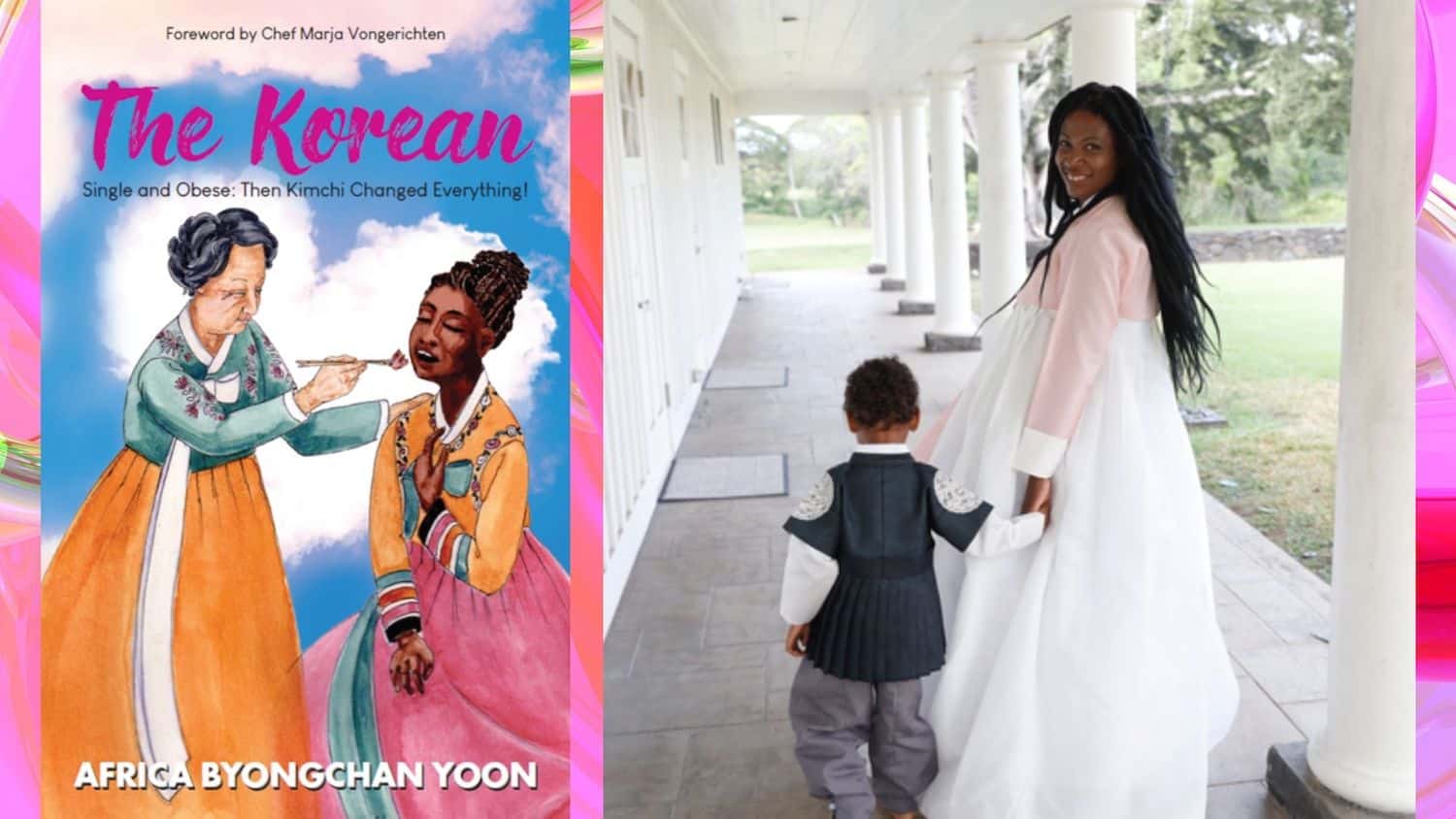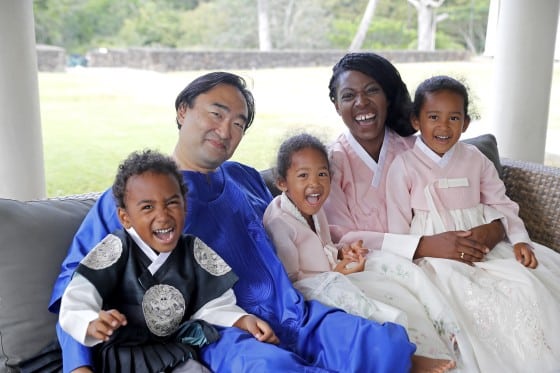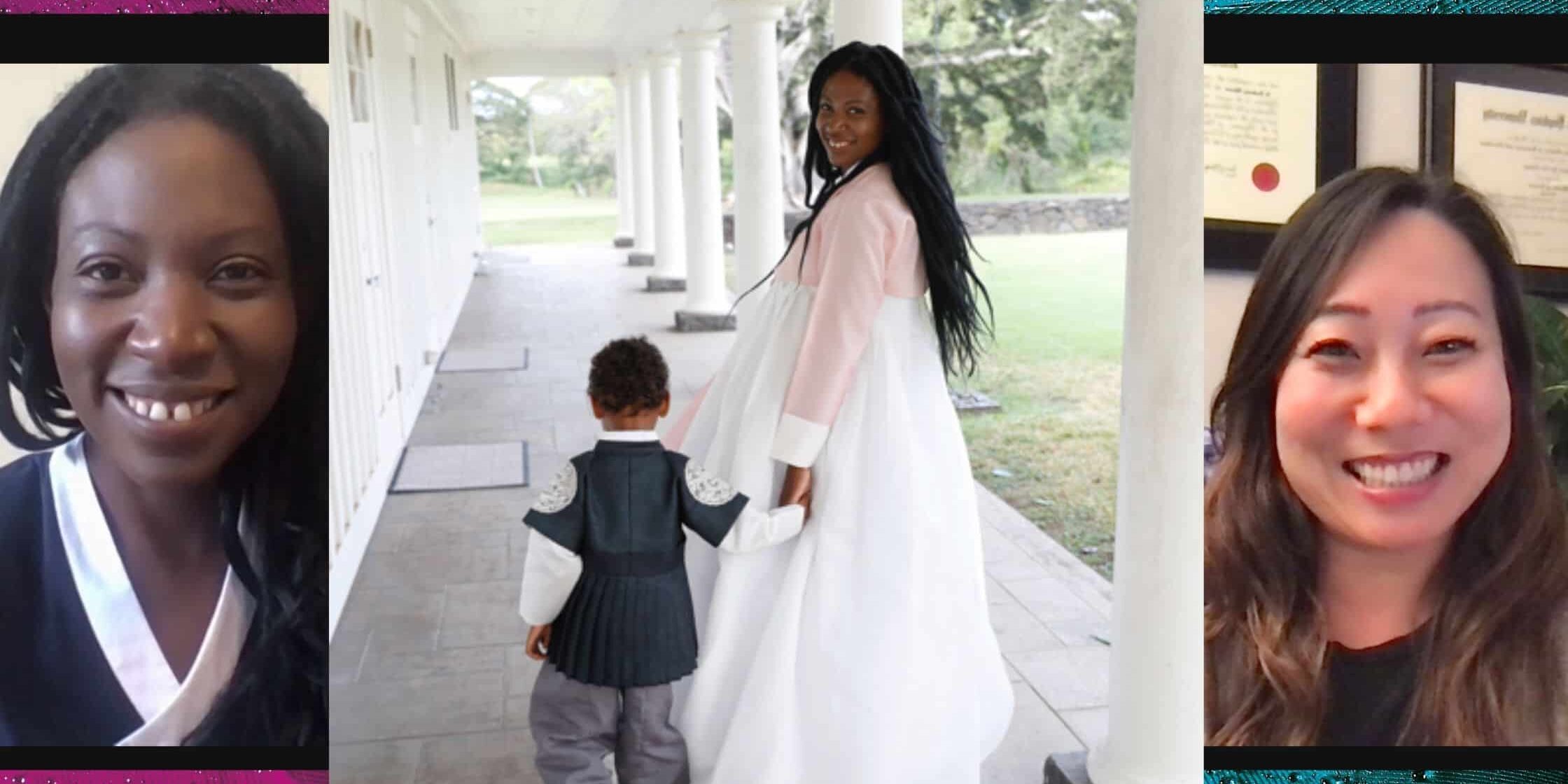“Korean culture and kindness repeatedly found me in my life. Not only did they find me, they kept saving my life.” Powerful words from Africa Yoon, who recently published her book, The Korean. If anyone has a passion for Korean food and culture and its benefits to our mental health, it’s Africa Yoon.
I first met her through her Facebook page, Korean Cooking Friends (now at 48K members) because who wouldn’t want to join a group that shares delicious Korean recipes and talks about Korean food? What fascinated me early on was how much Africa knew about Korean cuisine and how good she was at making it. I’d be envious seeing her videos and pictures of all the glorious Korean food she was making at home for her Korean husband and three children.
We got to know one another better last year after I asked her to do a cooking demo as part of the wellness programming at the 2020 virtual convention for NAAAP (National Association of Asian American Professionals). I’m the founder of NAAAP’s wellness program and her session was exactly what we needed early in the pandemic to boost our mental health, because we all know how much fun it is to talk about food!
I can’t think of a better way to launch my new column for Best of Korea than with an interview with Africa Yoon, a wonderful ambassador of Korea and its culture. Most of the time, I forget she is not Korean, but Cameroonian. I was eager to hear all about Africa’s journey behind The Korean and how her life, as well as her mental health, have been impacted by the experience.

Jeanie Chang: What is your why behind writing The Korean?
Africa Yoon: For starters, when I began writing The Korean, I thought I was going to die. If you ever think you will die and then you don’t, you feel blessed to have had all those feelings and come out of it alive. After my first pregnancy, I was diagnosed with postpartum thyroiditis. It was mild at first but became severe after my second pregnancy. The medications slowed my heart rate down to the point where I couldn’t even stand at times. It was during this period that I felt like I was going to die, and fell into a deep anxiety.
So, to know me is to know someone who’s grateful for every second I get on this planet. At that time, however, you could see that the mind is a powerful thing. All the information I was receiving, plus how terrible I felt, I thought, this was it. But somehow, in the daytime, I was being wonderful for my children despite how poorly I felt. Then at night when they went to sleep, I let it all out.
One night I picked myself off the floor, pulled myself to the mirror, and said, “listen here, girly, we are going to write our own ending.”I also decided I would start anxiety therapy. That was the beginning of me realizing that I was not powerless in my situation. I began to remember my experience of healing with a Korean halmoni, a stranger, I had met in my late twenties. After calling me fat, she proceeded to help me heal, introducing me to all the ingredients people use to make Korean food.
At a grocery store called Hanareum, now H Mart, she filled my cart with produce, kimchi, and banchan. As I was retracing my steps with her, I began to gain power and strength again. I also began to seek guidance from online and television chefs such as Marja Vongerichten, Chef Chris Cho, Maangchi, Roy Choi.

I began to write as I healed and eventually even went to South Korea, a source of more healing. While my work involved writing about my unfortunate health diagnosis, I began to tire of writing about being sick. When I wrote about feeling sick, I felt sick. So instead, with the guidance of a writing coach, I looked to a theme emerging on its own. That theme was how Korean culture and kindness had repeatedly found me in my life. Not only did it find me, it kept saving my life.
My book, The Korean, is a thank you, a love letter to Korean people, particularly women. The woman on the cover is Korean culture, a blend of all the women who nurtured me, from the halmoni in H Mart to my mother-in-law and other Korean American women. Also, because there is a tense history between Korean and Black people, I hope it will serve as a beacon of hope to unite us.
In particular, I want to protect Asian elders who are in physical danger in the United States. To tell a story about their worth and to show a young black woman who an Asian elder helped, I believe is essential at this time. So why? Black Asian Solidarity.

Jeanie: Wow, I’m blessed by your vulnerability and bringing up the history of our communities. How has Korean culture changed your life? Shifted your cultural and racial identity?
Africa: I am African; I will always be an African American woman. I was taught to be so proud of that. It is an unshakeable truth. My nose, dark skin, the way it turns golden when it greets the sun, the way I suck my teeth, the gap in my teeth, my feet and hands thick and robust. I mean my magnificent hair the way it is strong as rope and curly as the Sanaga River in Cameroon. The power in the way I walk into a room, good Lord, I am an African queen WALAAAAI !!! I am Black, and I am proud. Period. There will never be a new racial identity I carry. I can appreciate others, but man, does it feel good to be Black.
Now, I am also the mother of Korean and Cameroonian American children, so I must rock a Hanbok with the same pride as I wrap my head in African fabric. I am too powerful not to include Korean culture in my ways on my kids’ behalf. I am influential because I made them. I continue to make them daily; even though they left my womb, I create them. So, you will see me including everything necessary to their development on my body. I will be inclusive of the story of both their grandmothers, whom I respect equally.
Korean culture changed my life because it brought me back to nature. When you live by nature, you are closer to God and creation. That is also an African way, and it got me back to that. I have never eaten such a wide variety of fruits and vegetables as I have when eating Korean food. When I look at kaenip leaves and eat the leaf whole and raw, I feel it in my entire body.
In the culture of Korean cuisine, I learned there is something called siwonhan-mat. It’s a third sense where you feel the food in your entire being. There is experiencing food for flavor and there is experiencing food for smell. Then there is an all-encompassing feeling with Korean food. When I eat kaenip or kimchi or any of the Korean foods, I feel my body come alive and I can feel the food as it travels inside of me, which is something I haven’t really experienced with another category of food.
Perhaps with Indian food I feel a warming while Cameroonian food helps me rest, and Thai food makes me feel an awakening mostly in my head and sinus. But the feeling with every part of my body and being conscious of that? That is something I feel is unique to the ingredients of Korean Food. When I eat a leaf, I notice the leaves of the trees more, when I eat a root vegetable, I feel the earth and so on.
Korean food as I speak about in The Korean is really a symphony to nature. It makes me want to become natural in every way. It reminds me that, like the banchan served on a table, I can choose in my life the elements that I need to create balance.
Jeanie: You share in your book the mental health challenges you’ve experienced that led you to eat Korean food. How has Korean food like kimchi made such a mental health impact and “changed everything” in your life?
Africa: I have been both depressed and suffered from debilitating anxiety. Both aren’t my favorite, even though they are proof of my deep ability to feel. This makes me a better artist and human. If I didn’t feel so deeply, I would not love so well, or care so much, or want to uplift others. Simply put, kimchi affects my gut health. The bacteria in the gut produce chemicals that literally affect your mood. So, I don’t think it is any surprise that as kimchi enters my gut, there is an influence on my serotonin which makes me well – happy and calm!
When I first started eating kimchi, I wasn’t aware of all of this. I was aware that two things happened when eating all these raw vegan ingredients combined with kimchi and other banchan. One is that I went to the bathroom much more regularly and the second is that I felt happy. I am not a doctor, but when I eat kimchi, I feel happy. There is probably someone better qualified than a creative writer to explain the science behind that.
When I say it changed everything, it is because I began on a path to health. That path led to self-love and that self-love led to true love. Today, my children eat kimchi every day. Do you know what that is? That the food that healed me was the food I would feed my children. Wow, it gives me goosebumps and makes me say “All glory be to God“, who can even use food to guide me to inner peace!
Jeanie: I have goosebumps too! What are other ways you are sharing your love and passion for Korean food and Korean culture with your family, friends, and others?
Africa: I don’t consciously share Korean culture because it isn’t my culture to share. But I believe my life is proof of its power. Before marrying my husband and having bi-racial children, no one paid much attention to the fact that I have been eating Korean food for more than a decade even before meeting him. I became a raw vegan and there was far more interest in this. Kimchi is a raw live food, but you know trends are trends and don’t always care for details.
Now, with K-Pop and K-Dramas emerging as global entertainment giants, people are becoming more interested in other aspects of Korean culture. People aren’t interested in me at all. I think when people look, they look at us as a family. They are interested in how we came to be. We are not usual – an Asian man and a Black woman, with both families on board, happy and celebrating both cultures.

So, it begs the question, how did you get to be that way? The answer is that our love has become a marriage of two cultures. We are Cameroonians! We are Koreans! We are Asian Americans. We are African Americans, and we are proud.
I created a group to support other people who may have an interest in Korean food but have no guide. Korean Cooking Friends is for them, and for those looking to reconnect to Korean culture. We have many adoptees in the group, but it’s also for me. I still have loads of questions and that is why it is a group and not a page where I tell people how to make Korean food. It is a collective. I am not the leader; I am a member also.
I also created a game for my children to learn to make Korean food. But while the opening images are to attract kids, the kitchen part of the game is more for adults. It’s called Korean Cooking Friends, just as my group is named. It takes you through every step of making my favorite Korean food. It is the first of many games Blackyoonicorn, our company will release where we will introduce children to foods from around the world. We just started with Korean cuisine.
We hope that if they play with food from other cultures, it will create tolerance and peace.
Jeanie: I love all that you are doing, especially because I know they help with promoting good mental health which is my passion. What do you hope people will take away from ‘The Korean’?
Africa: I hope people will learn something global travelers have known for a long time. That you can go across the world to a place far from where you were born and, in another language surrounded by faces that do not look like yours, find yourself. We are so blessed as Americans that all those faces can be found right here in our country. Travel outside your culture and, as I did, find transformation. Embracing different cultures leads to a wonderful life.





